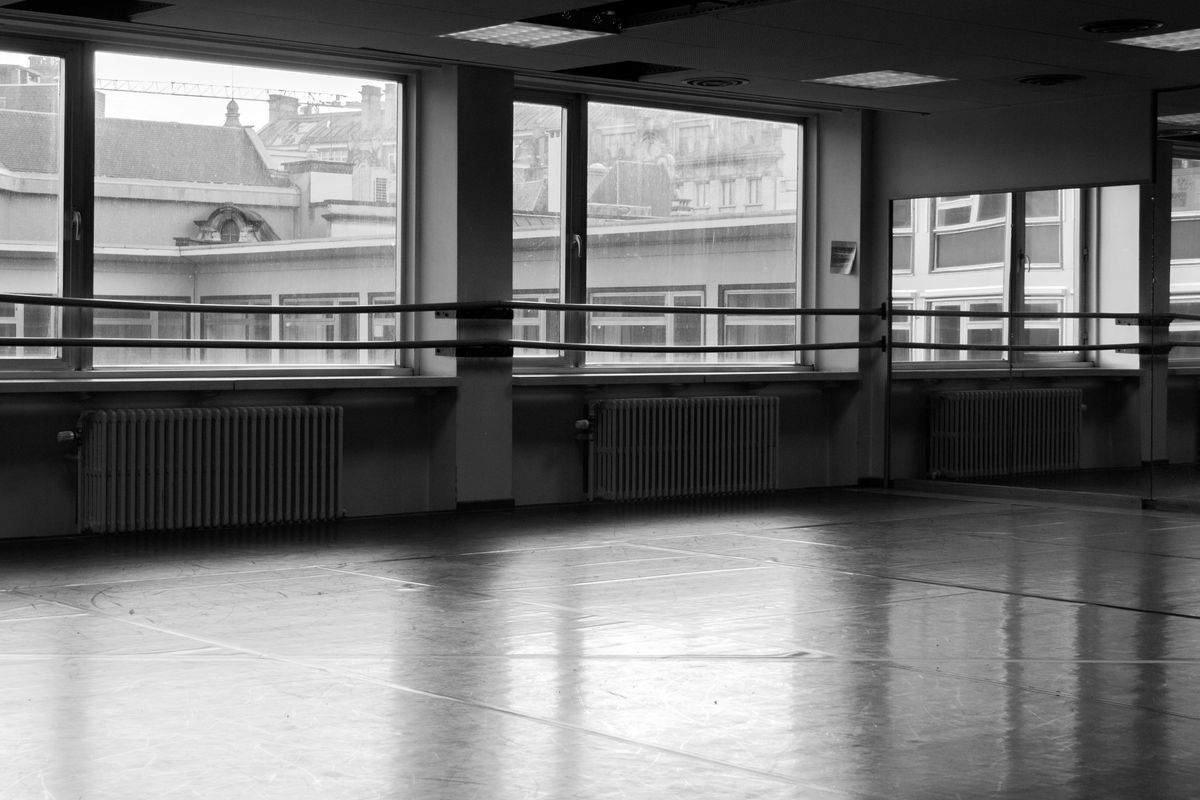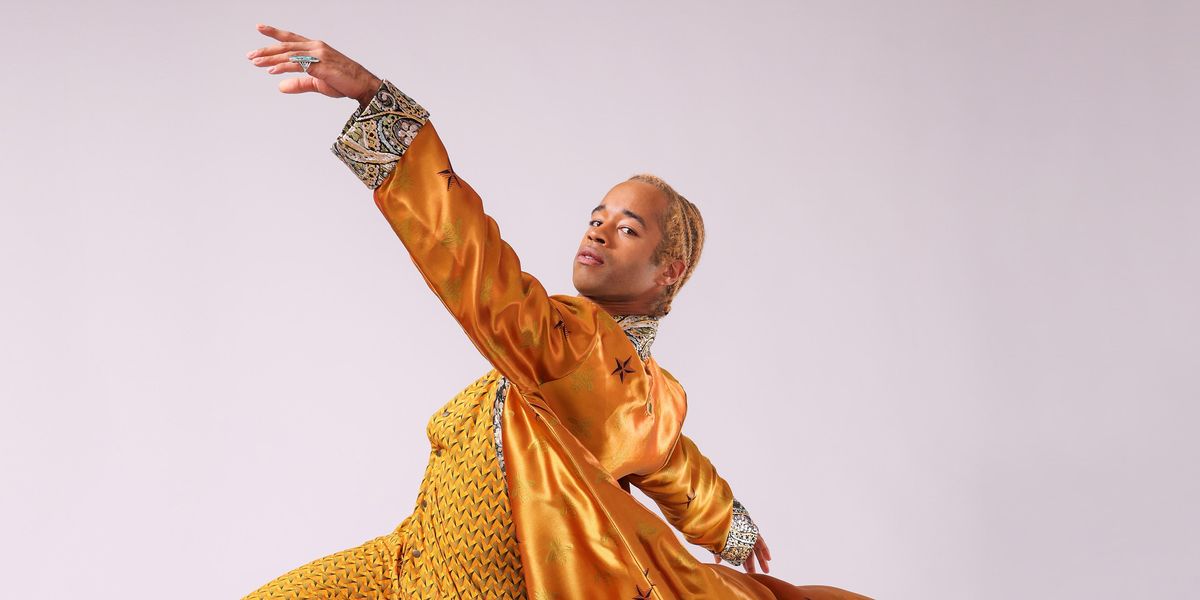Training, Interrupted: Maintaining Perspective on How the Coronavirus Pandemic Will Affect Your Future
Living-room ballet has always been a big part of my life, whether I was working out choreographic ideas or just giving myself barre. But, as I write this, living-room ballet is all we’ve had for weeks. That changes everything. I know that, for my students and other young dancers, fears about what they might lose due to the COVID-19 shutdown may be overwhelming. Below are some big-picture thoughts addressing those concerns, and a few suggestions for making the best of a frustrating situation.
I’m too out of shape to be impressive when we get back.
I spoke with Peter Boal, artistic director of Pacific Northwest Ballet and its affiliate school, who admits this may be true. “Everybody’s doing their best, holding on to the kitchen counter with the cat running by, but you can’t properly practice your pirouettes or jumps,” he says. Try to let go of being impressive, and focus instead on staying ready. In addition to taking remote ballet classes, find ballet-friendly cardio routines that will help you maintain your stamina. More importantly, remember that we’re all in this together. As Boal points out, “nobody is going to be ready for 32 fouettés on the first day!”

Could I lose anything technically that I won’t be able to get back?
Not likely, though I know it’s terrifying to feel as if your hard-won prowess is slipping away. Think about all the dancers you know who have recovered from long injuries or illnesses—maybe you’ve even experienced that yourself. A foot injury kept me in a cast and on crutches for months, and offstage for more than two years. Nonetheless, my strength and stamina returned. My extension and coordination actually improved; even the worst setbacks sometimes yield an unexpected little boon.
For dancers who have suffered injuries, this forced pause may summon reflexive anxiety about falling behind. I anticipate there will be some recovery necessary for all dancers after this, psychologically and emotionally, but physically the return will be much simpler than from an injury. “People should expect some weakness,” Boal says, “but they’re not losing that much.”
What if I’ve fallen into bad habits training on my own?
“Now more than ever, you must self-correct,” says Boal. He reminds his students that they already know most of their corrections: “It’s not news that you need to cross that tendu front.” If class moves too quickly for you to think about your trouble spots before each combination, give yourself a brief, thoughtful pre-barre in advance. Review and gently practice what you need to work on. Then, during class, give yourself little proprioceptive reminders. Tap the inside of a knee, for instance, that tends to soften. These good habits of self-correction will triumph over the nagging bad ones.
I’m unable to go to my summer intensive, and I was hoping to be asked to stay next year. Now what?
“For students who are putting their bets on one company or finishing school, this time is really unfair,” says Boal. He raised the issue recently on a call with other school directors, organized by Dance/USA, and suggests that many schools will likely broaden their approach this year. For example, PNB will accept video applications and teacher recommendations from students who would like to join their Professional Division this fall. If you don’t know whether the school or trainee program you were hoping to attend is doing something similar, reach out and ask. “Schools are not going to slam the door on anybody,” he says. “They want to be as fair as possible.”

I’ll be auditioning for companies next spring, and I’m worried they’ll be too financially pinched to hire new apprentices.
This is a real concern. Though Boal reports that PNB is committed to keeping the company roster at its current size next season, not all companies may be able to do that. “It’s going to be really rough waters for all of us,” he acknowledges. This might be a good time to carefully consider all of your options. Could you attend a college dance program and revisit the idea of dancing professionally in a few years? Is it possible for you to be happy pursuing something else? “There are other worlds that are more stable,” Boal notes. “But ballet—most of us can’t not do it.” If you fall into that category, don’t lose hope. Boal has been pleasantly surprised by the generosity of new donors as well as old in this time of difficulty. “At some point, society needs its art,” he says. “That’s what we’re hanging our hat on.”
The Silver Linings
I want, first, to recognize the losses: the year-end performances that couldn’t take place and, for graduating students, the lack of the farewell ceremony you grew up watching and waiting for. And also, canceled summer programs, with all the possibilities they offer, from new friendships to palpable weekly improvement. Dancers are resilient: We will all, as Boal says, “get back up to speed.” But these losses can feel devastating. Let yourself mourn—then take a breath, and find a way to keep dancing.
The silver linings are bright. There are incredible opportunities to “shop” for virtual experiences that would be impossible in real life. “Pick a favorite principal, even in a company halfway around the world,” Boal encourages. “You can probably take class with them right now.” Then there is the unprecedented smorgasbord of ballets available to view online. You are also learning skills that will help you for the rest of your career. The ability to dance expansively in a small space will prove useful in the corps: That bookshelf you bump into now will be another dancer, someday. And the self-reliance and physical self-knowledge you’re gaining, as you learn to productively self-correct, will make you the kind of smart dancer all choreographers want to work with: quick to learn, thoughtful and adaptable.
A friend of mine has a variant definition of living-room ballet: For her, it’s when a dancer performs with the kind of freedom and joy that many only experience in their living rooms. May we all shortly return to that kind of living-room ballet! For now, Boal says, “have faith we will be back soon. It’s hard to stop dancers from dancing.”




